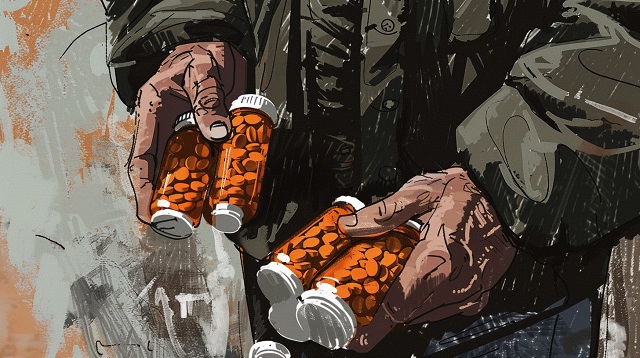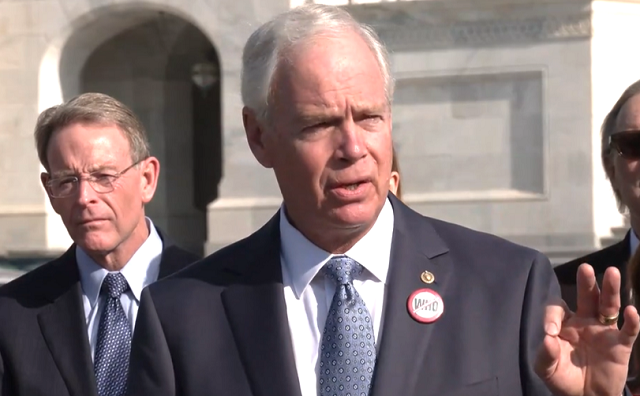Business
Taxpayers release Naughty and Nice List

From the Canadian Taxpayers Federation
Author: Franco Terrazzano
CBC President and CEO Catherine Tait tops the Taxpayer Naughty List for announcing hundreds of layoffs weeks before Christmas without cancelling bonuses for executives.
“It takes a special type of Scrooge to lay off hundreds of employees weeks before the holidays and not be willing to give up your own bonus, but that’s exactly what taxpayers heard from CBC big shots,” said Franco Terrazzano, CTF Federal Director. “Meanwhile, Senator Pierre Dalphond delayed and watered-down carbon tax relief for farmers and now Santa’s furious because the bills for his candy cane farm and reindeer barn are through the chimney.”
Prime Minister Justin Trudeau made the Taxpayer Naughty List for removing the carbon tax from furnace oil for three years while leaving 97 per cent of Canadian families out in the cold. Nova Scotia Premier Tim Houston also found himself in Santa’s bad books for taking more money from taxpayers through the sneaky income tax hike known as bracket creep.
Manitoba Premier Wab Kinew made the Taxpayer Nice List for providing taxpayers with Santa-sized fuel and income tax relief. The Parliamentary Budget Officer also made Santa’s good books for improving accountability and transparency in Ottawa.
“‘Tis the season for giving, but Calgary Mayor Jyoti Gondek and Edmonton Mayor Amarjeet Sohi shouldn’t be giving their residents steep tax hikes while they give themselves a raise,” said Kris Sims, Alberta Director of the CTF. “The entire Alberta village of Ryley made Santa’s good books for using recall legislation to boot a big-spending politician.”
The 2023 Taxpayer Naughty and Nice List
The Naughty List (So…. long!)
CBC President & CEO Catherine Tait – For clinging to executive bonuses
It takes a special type of Scrooge to announce hundreds of layoffs weeks before Christmas. Even worse, Tait isn’t willing to end the tens-of-millions of dollars in bonuses the CBC doled out in recent years. ‘Tis the season for giving… but giving out bonuses while firing hundreds of staffers is a sure-fire way to land yourself on Santa’s Naughty List!
Prime Minister Justin Trudeau – For leaving 97 per cent of Canadians out in the cold
All Canadians need a warm home to celebrate during the holiday season. But Trudeau thinks only three per cent of Canadians need carbon tax relief this winter. Trudeau is removing the carbon tax from furnace oil while keeping the tax on for 97 per cent of Canadian families. Santa is stuffing the prime minister’s stocking with lumps of coal this year and Trudeau will be sure to carbon tax those lumps, too.
Senator Pierre Dalphond – For making Santa’s milk and cookies more expensive
The holiday season is a time to enjoy festive feasts with loved ones. But Senator Pierre Dalphond is making the holiday season more expensive by delaying and watering down a bill that would take the carbon tax off all farm fuels. Canadians worry they may have to cut back on the milk and cookies they leave out on Christmas eve. Unfortunately for Senator Dalphond, Santa is not a happy camper, because the bills for his candy cane farm and reindeer barn are going through the chimney.
Mayor of Quebec City Bruno Marchand and Vancouver Mayor Ken Sim – For hiking taxes on pets
It’s one thing to tax the air we breathe, the money we earn or the presents we buy. But taxing our pets … have you no heart, Mr. Grinch? Mayors Marchand and Sim are hiking the taxes families pay to own pets in Quebec City and Vancouver. Rumour has it Santa is launching a campaign to take the tax off his reindeer.
Federal Minister of Industry François-Philippe Champagne – For giving billions of dollars to multinational corporations
There’s only one place you’ll find yourself if you pull a reverse Robin Hood … Santa’s Naughty List! Champagne has been busy taking money from struggling taxpayers and giving billions of dollars to multinational corporations to build electric car battery plants. Champagne should take notes from
Santa and his little helpers. They’ve been building batteries and remote-control hot rods for decades, at no cost to taxpayers!
Mayor of Calgary Jyoti Gondek and Edmonton Mayor Amarjeet Sohi – For hiking taxes and their own pay
‘Tis the season for giving … and mayors Gondek and Sohi sure do love giving. They’re giving their residents steep property tax hikes. And they’re giving themselves pay raises. Calgary City Council and Edmonton city council both took a raise this year. More lumps of coal: both Gondek and Sohi take bigger salaries than the premier of Alberta.
Nova Scotia Premier Tim Houston – For his bracket creep income tax hike
Nothing makes Santa more upset than bracket creep. It’s a sneaky backdoor tax grab that allows politicians to use inflation to raise income taxes. Nova Scotia Premier Tim Houston is using bracket creep to gouge taxpayers. And for that, Houston finds himself on Santa’s Naughty List this year.
University of Manitoba’s former law dean Jonathan Black-Branch – For racking up half-a-million in expenses
Black-Branch’s term was cut short after an internal investigation found he expensed upwards of $500,000 in public funds, including for personal dinners and drinks. Now that’s a lot of cookies and eggnog! There’s only one way for Black-Branch to get off the Naughty List: pay the money back.
The Nice List (So… short!)
Manitoba Premier Wab Kinew – For the gift of tax relief
Kinew is giving Manitobans Santa-sized fuel and income tax relief in the New Year. He committed
to suspending the province’s fuel tax and providing significant income tax relief. And kudos to the previous Manitoba government who didn’t forget about the Tiny Tims. Thanks to the last budget, taxpayers earning less than $15,000 won’t pay any provincial income taxes.
Liberal MP Ken McDonald – For getting his constituents carbon tax relief
It takes a lot of courage to stand up for your convictions and constituents, and vote against your party leader. McDonald did just that when he voted to “repeal all carbon taxes.” Because of his advocacy, the feds took the carbon tax off furnace oil for three years. Santa just wishes Liberal MPs in other parts of Canada had McDonald’s courage and were willing to stick up for their constituents too.
Parliamentary Budget Officer Yves Giroux – For the gift of government accountability and transparency
Taxpayers always deserve the gift of transparency and accountability in Ottawa. And the PBO delivered it in droves in 2023. From showing the full cost of Trudeau’s two carbon taxes, to fact-checking Ottawa’s deficit numbers and analyzing tax plans, the PBO has been holding politicians accountable all year.
Alberta’s Village of Ryley – For recalling a big-spending mayor
Ryley is the first municipality in Canada to recall a city hall politician, former mayor Nik Lee. During Lee’s tenure, the village’s spending almost doubled from $1.7 million to $3 million in 2022. Lee also spent more than $5,000 on meetings without approval. When Lee refused to resign from council, residents of Ryley took matters into their own hands, launched a recall campaign and booted Lee. For their civic engagement and holding a big-spending politician accountable, all residents of Ryley land themselves on Santa’s Nice List this year!
Business
Economic progress stalling for Canada and other G7 countries

From the Fraser Institute
By Jake Fuss
For decades, Canada and other countries in the G7 have been known as the economic powerhouses of the world. They generally have had the biggest economies and the most prosperous countries. But in recent years, poor government policy across the G7 has contributed to slowing economic growth and near-stagnant living standards.
Simply put, the Group of Seven countries—Canada, France, Germany, Italy, Japan, the United Kingdom and the United States—have become complacent. Rather than build off past economic success by employing small governments that are limited and efficient, these countries have largely pursued policies that increase or maintain high taxes on families and businesses, increase regulation and grow government spending.
Canada is a prime example. As multiple levels of government have turned on the spending taps to expand programs or implement new ones, the size of total government has surged ever higher. Unsurprisingly, Canada’s general government spending as a share of GDP has risen from 39.3 per cent in 2007 to 42.2 per cent in 2022.
At the same time, federal and provincial governments have increased taxes on professionals, businessowners and entrepreneurs to the point where the country’s top combined marginal tax rate is now the fifth-highest among OECD countries. New regulations such as Bill C-69, which instituted a complex and burdensome assessment process for major infrastructure projects and Bill C-48, which prohibits producers from shipping oil or natural gas from British Columbia’s northern coast, have also made it difficult to conduct business.
The results of poor government policy in Canada and other G7 countries have not been pretty.
Productivity, which is typically defined as economic output per hour of work, is a crucial determinant of overall economic growth and living standards in a country. Over the most recent 10-year period of available data (2013 to 2022), productivity growth has been meagre at best. Annual productivity growth equaled 0.9 per cent for the G7 on average over this period, which means the average rate of growth during the two previous decades (1.6 per cent) has essentially been chopped in half. For some countries such as Canada, productivity has grown even slower than the paltry G7 average.
Since productivity has grown at a snail’s pace, citizens are now experiencing stalled improvement in living standards. Gross domestic product (GDP) per person, a common indicator of living standards, grew annually (inflation-adjusted) by an anemic 0.7 per cent in Canada from 2013 to 2022 and only slightly better across the G7 at 1.3 per cent. This should raise alarm bells for policymakers.
A skeptic might suggest this is merely a global phenomenon. But other countries have fared much better. Two European countries, Ireland and Estonia, have seen a far more significant improvement than G7 countries in both productivity and per-person GDP.
From 2013 to 2022, Estonia’s annual productivity has grown more than twice as fast (1.9 per cent) as the G7 countries (0.9 per cent). Productivity in Ireland has grown at a rapid annual pace of 5.9 per cent, more than six times faster than the G7.
A similar story occurs when examining improvements in living standards. Estonians enjoyed average per-person GDP growth of 2.8 per cent from 2013 to 2022—more than double the G7. Meanwhile, Ireland’s per-person GDP has surged by 7.9 per cent annually over the 10-year period. To put this in perspective, living standards for the Irish grew 10 times faster than for Canadians.
But this should come as no surprise. Governments in Ireland and Estonia are smaller than the G7 average and impose lower taxes on individuals and businesses. In 2019, general government spending as a percentage of GDP averaged 44.0 per cent for G7 countries. Spending for governments in both Estonia and Ireland were well below this benchmark.
Moreover, the business tax rate averaged 27.2 per cent for G7 countries in 2023 compared to lower rates in Ireland (12.5 per cent) and Estonia (20.0 per cent). For personal income taxes, Estonia’s top marginal tax rate (20.0 per cent) is significantly below the G7 average of 49.7 per cent. Ireland’s top marginal tax rate is below the G7 average as well.
Economic progress has largely stalled for Canada and other G7 countries. The status quo of government policy is simply untenable.
Author:
Business
Proposed changes to Canada’s Competition Act could kneecap our already faltering economy

From the Macdonald Laurier Institute
Aaron Wudrick, for Inside Policy
No party wants to be seen as soft on “big business” but that is a bad reason to pass potentially harmful, counterproductive competition policy legislation.
The recent federal budget was widely panned – in particular by the entrepreneurial class – for its proposal to raise the capital gains inclusion rate. As it turns out, “soak the rich” might sound like clever politics (it’s not) but it’s definitely a poor narrative if your goal is to incentivize and encourage risk-taking and investment.
But while this damaging measure in the federal budget has at least drawn plenty of public ire, other harmful legislative changes are afoot that are getting virtually no attention at all. They’re contained in Bill C-59 – the omnibus bill still wending its way through Parliament to enact measures contained in last fall’s economic statement – and consist of major proposed amendments to Canada’s Competition Act. The lack of coverage and debate on these changes is all the more concerning given that, if enacted, they could have a long-term negative impact on our economy comparable to the capital gains inclusion rate hike.
Worst of all, the most potentially damaging changes weren’t even in the original bill, but were brought forward by the NDP at the House of Commons Standing Committee on Finance, and are lifted directly from a previous submission made to the committee by the Commissioner of Competition himself. In effect, they would change competition law to put a new onus on businesses to prove a negative: that having a large market share isn’t harmful to consumers.
MPs on the committee have acknowledged they don’t really understand the changes – they involve a “concentration index” described as “the sum of the squares of the market shares of the suppliers or customers” – but the government itself previously cast doubt on the need for this additional change. It’s obvious that a lot of politics are at play here: no party wants to be seen as soft on “big business.” But this is about much more than “big business.” It’s about whether we want to enshrine in law unfounded, and potentially very harmful, assumptions about how competition operates in the real world.
The changes in question are what are known in legal circles as “structural presumptions” – which, as the name implies, involve creating presumptions in law based on market “structure” – in this case, regarding the concentration level of a given market. Presumptions in law matter, because they determine which side in a competition dispute – the regulatory authority, or the impugned would-be merging parties – bears the burden of proof.
So why is this a bad idea? There are at least three reasons.
First of all, the very premise is faulty: most economists consider concentration measures alone (as opposed to market power) to be a poor proxy for the level of competition that prevails in a given market. In fact, competition for customers often increases concentration.
This may strike most people as counterintuitive. But because robust competition often leads to one company in particular offering lower prices, higher quality, or more innovative products, those who break from the pack tend to attract more customers and increase their market share. In this respect, higher concentration can actually signal more, rather than less, competition.
Second, structural presumptions for mergers are not codified in the US or any other developed country other than Germany (and even then, at a 40 percent combined share rather than 30 percent). In other words, at a time when Canada’s economy is suffering from the significant dual risks of stalled productivity growth and net foreign investment flight, the amendments proposed by the NDP would introduce one of the most onerous competition laws in the world.
There is a crucial distinction between parliamentarians putting such wording into legislation – which bind the courts – and regulatory agencies putting them in enforcement guidelines, which leave courts with a degree of discretion.
Incorporating structural presumptions into legislation surpasses what most advanced economies do and could lead to false negatives (blocking mergers that would, if permitted, actually benefit consumers), chill innovation (as companies seeking to up their game in the hopes of selling or merging are deterred from even bothering), and result in more orphaned Canadian businesses (as companies elect not to acquire Canadian operations on global transactions).
Finally, the impact on merger review will not be a simplification but will likely just fetter the discretion and judgment of the expert and impartial Competition Tribunal in determining which mergers are truly harmful for consumers and give more power to the Competition Bureau, the head of which is appointed by the federal Cabinet. Although the Competition Bureau is considered an independent law enforcement agency, it must still make its case before a court (the Tribunal, in this case).The battleground at the Tribunal will shift from focusing on the likely effect of the merger on consumers to instead entertaining arguments between the Bureau’s and companies’ opposing arguments about defining the relevant market and shares.
Even if, after further study, the government decided that rebuttable structural presumptions are desirable, C-59 already repeals subsection 92(2) of the Competition Act, which allows the Tribunal to develop the relevance of market shares through case law – a far better process than a blanket rule in legislation. Nothing prevents the Bureau from incorporating structural presumptions as an enforcement screen for mergers in its guidelines, which is what the United States has done for decades, rather than putting strict (and therefore inflexible) metrics into statute and regulations.
No one disputes that Canada needs a healthy dose of competition in a wide range of sectors. But codifying dubious rules around mergers risks doing more harm than good. In asking for structural presumptions to be codified, the Competition Bureau is missing the mark. Most proposed mergers that will get caught by these changes should in fact be permitted on the basis that consumers would be better off – and the uncertainty of being an extreme outlier on the global stage in terms of competition policy will create yet another disincentive to start and grow businesses in Canada.
This is the opposite of what Canada needs right now. Rather than looking for ill-advised shortcuts that entangle more companies in litigation and punt disputes about market definition rather than effects to the Tribunal, the Bureau should be focusing on doing its existing job better: building evidence-backed cases against mergers that would actually harm Canadians.
Aaron Wudrick is the domestic policy director at the Macdonald-Laurier Institute.
-

 Brownstone Institute3 hours ago
Brownstone Institute3 hours agoThe Predictable Wastes of Covid Relief
-

 Brownstone Institute6 hours ago
Brownstone Institute6 hours agoBook Burning Goes Digital
-

 conflict7 hours ago
conflict7 hours agoOver 200 Days Into War, Family Of American Hostage in Gaza Strives For Deal To Bring Son Home
-

 Addictions2 hours ago
Addictions2 hours agoCanada’s ‘safer supply’ patients are receiving staggering amounts of narcotics
-

 Bruce Dowbiggin1 hour ago
Bruce Dowbiggin1 hour agoDo It Once, Shame On You; Do It Twice, Shame On Me
-

 Great Reset8 mins ago
Great Reset8 mins agoAll 49 GOP senators call on Biden admin to withdraw support for WHO pandemic treaty
-

 Business2 days ago
Business2 days agoSaudis evict locals with lethal force to build ‘green’ city in line with globalist goals: report
-

 MAiD2 days ago
MAiD2 days agoEven Canadian leftists are starting to recognize the ‘dystopian’ nature of MAiD





